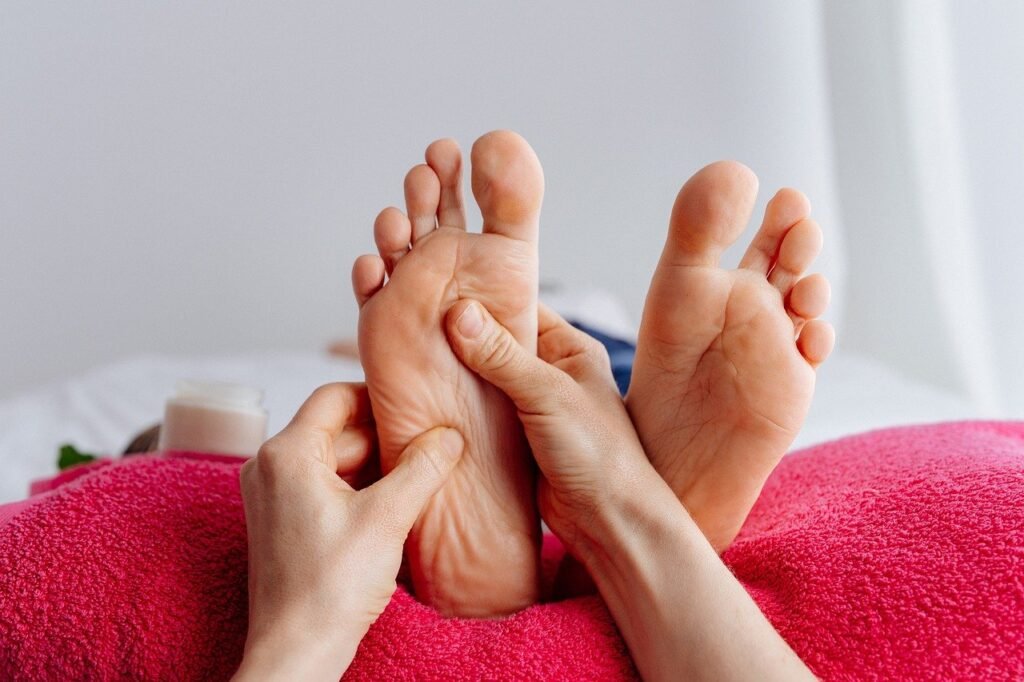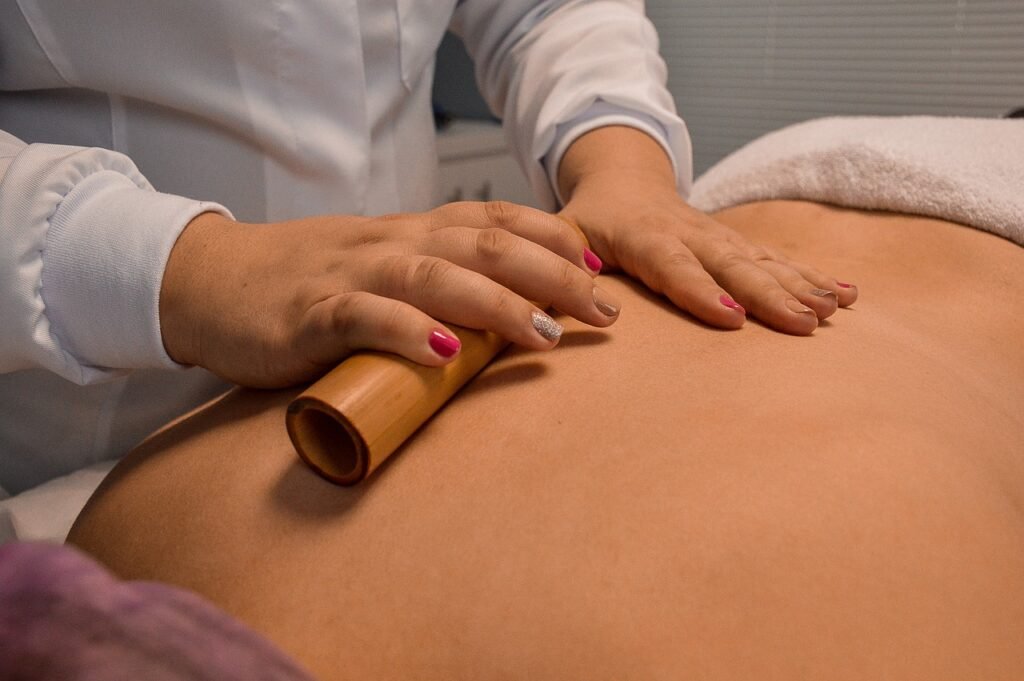Curious about healing therapies? If so, you’ve likely come across massage and reflexology among your options. Although they appear alike at first glance, understanding their differences can help you make an informed choice. In this article, we’ll explore the distinct features and benefits of both reflexology and massage, and outline what sets them apart. Ready to learn more? Let’s jump in!
What Is Reflexology
Reflexology is an ancient holistic healing practice tracing its origins to China, Egypt, and India. This therapy operates on the premise that specific points on your feet, hands, and ears are connected to different organs, glands, and parts of your body. When a skilled reflexologist applies pressure to these areas, it can trigger your body’s natural healing abilities, helping to restore balance and relieve various health issues.

In a reflexology session, you’ll experience a unique combination of pressure, stretching, and massage techniques. The focus is mainly on your feet, but don’t be surprised if your hands and ears get some attention too. Unlike traditional massages that work on soft tissues and muscles, reflexology zeroes in on those key pressure points to promote overall wellness.
Advantages Of Reflexology
Keeping My Nerves in Top Shape
Did you know that as we get older, our nerve endings, especially those in our hands and feet, can become a bit less responsive? I recently discovered that reflexology can work wonders by stimulating over 7,000 nerve endings in a single session! It’s like giving my neural pathways a much-needed workout, helping to keep my body flexible and functioning well.
Boosting My Circulation
One of the things I love about reflexology is its ability to improve blood flow. By enhancing circulation, reflexology ensures that oxygen and nutrients reach my vital organs more efficiently. This not only optimizes their performance but also speeds up healing and cell regeneration. I feel more energized and healthier overall!
Finding My Zen
Reflexology has this incredible way of opening up neural pathways, which leads to a state of relaxation for both mind and body. It has even helped me with sleep issues, allowing my body to relax and return to its natural sleep patterns. It’s like a mini-vacation for my nervous system every time I have a session.
Flushing Out Toxins
Another benefit of reflexology I’ve noticed is the improvement in bladder function, which helps reduce urinary tract issues. This enhanced elimination of toxins from my body contributes to better protection against diseases and health conditions related to the urinary system. Who knew something so relaxing could be so beneficial?
Reflexology has been a game-changer for me in so many ways. Have you tried it yet? If not, I highly recommend giving it a go!
What is Massage?
Unlike reflexology, which zeroes in on specific reflex points, massage therapy uses a variety of strokes and pressure levels. These are all tailored to what we need and prefer at any given moment.

Whether you’re looking to treat your whole body or just focus on specific areas, there’s a massage style out there for you. From Swedish and deep tissue to sports and hot stone, each type comes with its own set of perks, boosting not just our physical health but also our emotional and mental well-being.
Advantages of Massage Therapy
Promoting Relaxation and Reducing Stress
Massage sessions help me unwind by calming my nervous system, lowering stress hormones, and releasing those feel-good endorphins. This creates a deep sense of relaxation and well-being. Regular massages have led to better sleep, improved mood, and greater mental clarity for me.
Supporting Injury Recovery
Massage therapy has been a game-changer in my injury recovery and prevention. It helps reduce inflammation, promotes tissue healing, and improves muscle flexibility and strength. Whether I’m an athlete or just recovering from an injury, tailored massage treatments ensure I heal optimally and perform at my best.
Alleviating Muscle Tension and Pain
Whenever I get a massage, it works wonders for easing my muscle tension and pain. By focusing on those tight muscles and knots, it boosts blood flow and enhances my flexibility. This not only reduces discomfort but also improves my mobility, letting me enjoy life to the fullest.
Boosting Immunity and Circulation
I’ve found that the therapeutic strokes and pressure during a massage can really kickstart my lymphatic system, helping to flush out toxins and boost my immune function. Plus, it enhances blood circulation, delivering essential nutrients and oxygen to my cells, which is great for my overall health.
Key Differences Between Massage and Reflexology
While reflexology and massage both aim to enhance relaxation and well-being, they have distinct differences that make each unique.
Area of Focus
Reflexology concentrates on reflex points found on the feet, hands, and ears, while massage addresses the entire body or specific areas, depending on my requirements. Reflexology is based on the idea of energy flow and interconnected body parts, while massage focuses on manipulating soft tissues and muscles for therapeutic effects.
Techniques
Practitioners of reflexology use precise pressure and stretching techniques on reflex points, whereas massage therapists employ various strokes, pressures, and movements on the body’s soft tissues. Reflexology offers a more targeted approach, whereas massage provides a broader treatment.
Individual Needs
The choice between massage and reflexology depends on my specific preferences and needs. Reflexology suits those seeking a natural, non-invasive therapy for particular health issues, while massage therapy is ideal for individuals looking for overall relaxation, improved circulation, and relief from muscle tension.
In short
To wrap it up, realizing how massage and reflexology are unique reveals the variety of ways we can improve our physical and mental well-being. By recognizing their differences, we can confidently explore these therapies and find what works best for us.

Hello! I’ve been a freelance writer for 15 years, specializing in health, fitness, and technology. My passion led me to create a website all about the benefits of massage chairs. I combine thorough research and personal testing to provide you with honest and reliable information. My goal is to make it easier for you to find the perfect massage chair for your needs. Thanks for visiting, and I hope you find my insights helpful!
